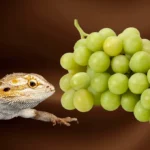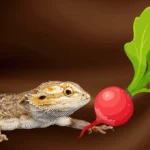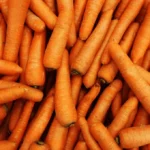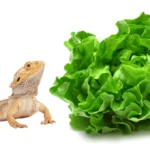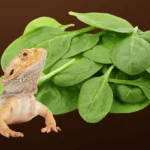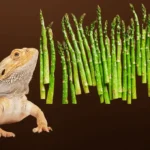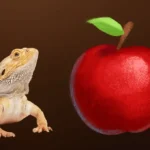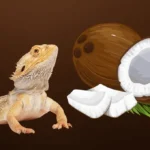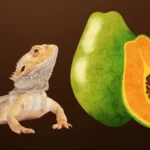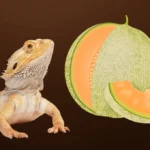Bearded dragons are omnivorous reptiles with a diverse diet that includes insects, leafy greens, vegetables, and fruits. Offering a variety of foods helps ensure they receive all the necessary nutrients for optimal health. One common plant that often comes up in discussions about bearded dragon diets is dandelion.
This article explores whether dandelions are a suitable food for bearded dragons, including their nutritional benefits, potential risks, and guidelines for safe consumption.
Nutritional Profile of Dandelions
Dandelions are common weeds found in gardens and lawns, and they are rich in various nutrients. Here’s a look at their nutritional content and how it benefits bearded dragons:
Vitamins in Dandelions
Dandelions are packed with vitamins, including:
- Vitamin A: Essential for vision, skin health, and immune function.
- Vitamin C: Supports immune health and helps with wound healing.
- Vitamin K: Important for blood clotting and bone health.
These vitamins contribute to overall health and can be beneficial for bearded dragons.
Minerals in Dandelions
Dandelions provide several essential minerals:
- Calcium: Crucial for bone health and preventing metabolic bone disease (MBD).
- Iron: Supports the production of red blood cells and overall energy levels.
- Potassium: Helps maintain fluid balance and muscle function.
The calcium-to-phosphorus ratio in dandelions is favorable, making them a good choice for bearded dragons.
Fiber Content
Dandelions are high in dietary fiber, which aids digestion and helps maintain regular bowel movements. Fiber is beneficial for preventing constipation and supporting overall digestive health.
Benefits of Feeding Dandelions to Bearded Dragons
Feeding dandelions to bearded dragons can offer several advantages:
1. Nutrient-Rich Greens
Dandelions are nutrient-dense, providing a range of vitamins and minerals that support overall health. Their high calcium content can help prevent MBD and promote strong bones.
2. Digestive Health
The fiber in dandelions supports healthy digestion and can help prevent constipation. Including dandelions in the diet can contribute to a balanced digestive system.
3. Low in Oxalates
Dandelions are relatively low in oxalates compared to some other leafy greens. Oxalates can bind to calcium and reduce its absorption, so lower oxalate levels are preferable for maintaining calcium balance.
Risks and Considerations When Feeding Dandelions
While dandelions offer many benefits, there are a few considerations to keep in mind:
1. Pesticide Exposure
Dandelions growing in gardens or lawns may have been exposed to pesticides or other chemicals. Ensure that any dandelions fed to your bearded dragon are free from chemicals by sourcing them from pesticide-free areas or purchasing from a reputable supplier.
2. Moderation is Key
Although dandelions are nutritious, they should be offered as part of a varied diet. Relying solely on dandelions or any single food item can lead to imbalances in nutrition. Offer dandelions alongside other vegetables and greens to ensure a well-rounded diet.
3. Potential for Allergic Reactions
As with any new food, there is a possibility of allergic reactions or sensitivities. Introduce dandelions gradually and monitor for any adverse reactions, such as changes in behavior or digestive upset.
How to Safely Feed Dandelions to Bearded Dragons
To safely include dandelions in your bearded dragon’s diet, follow these guidelines:
1. Wash Thoroughly
Wash dandelions thoroughly to remove any dirt, pesticides, or chemicals. It’s essential to provide clean, safe food to avoid health risks.
2. Offer Fresh and Organic
Use fresh, organic dandelions whenever possible. Organic dandelions are less likely to have been treated with harmful chemicals.
3. Chop into Appropriate Sizes
Chop dandelions into small, manageable pieces to make it easier for your bearded dragon to eat and digest.
4. Combine with Other Foods
Include dandelions as part of a varied diet, combining them with other vegetables, leafy greens, and insects. This balance ensures your bearded dragon receives all necessary nutrients.
Alternative Greens for Bearded Dragons
If you’re looking for other nutritious greens to include in your bearded dragon’s diet, consider these options:
| Green | Nutritional Benefits | Feeding Frequency |
|---|---|---|
| Collard Greens | High in calcium, Vitamin A, and fiber | Daily |
| Mustard Greens | Rich in calcium, vitamins, and fiber | Daily |
| Kale | High in calcium and vitamins A and C | 2-3 times a week |
| Swiss Chard | Rich in vitamins and minerals | 1-2 times a week |
| Turnip Greens | Good source of calcium and vitamins | 1-2 times a week |
These greens offer a balanced nutritional profile and can be incorporated into your bearded dragon’s diet regularly.
Conclusion
Dandelions are a nutritious and beneficial addition to a bearded dragon’s diet when offered in moderation. They provide essential vitamins, minerals, and fiber that support overall health and digestive function. To ensure the best health for your bearded dragon, offer dandelions alongside a variety of other foods, and always wash them thoroughly to remove any potential contaminants. By following these guidelines, you can provide a well-rounded and nutritious diet for your bearded dragon.

